- Home
- Shirlee McCoy
Home at Last Page 4
Home at Last Read online
Page 4
The place was old.
Just like Matt had said.
She’d written about it in her journal last year. Yesterday, she’d underlined the entry three times. Because she’d wanted to remember that he’d been hinting at his unhappiness, that she’d ignored the hints because she hadn’t wanted to believe he’d loved their life less than she did.
She’d always been prone to optimism.
That was another thing she’d written about in her journals—the hope she’d had for the future, her determination to make things work. The farm. The parenting. The marriage.
But, no amount of effort could change another person’s heart.
No amount of trying could make someone want what they didn’t.
And, no amount of wishing could change the past.
* * *
If he could have changed the past, Flynn would have.
He’d thought about that a lot these past few months. Thought about how he’d tried to be the cool uncle who’d flown in a couple of times a year for a quick visit, the easy-going brother who hadn’t demanded or expected anything other than warm welcomes and a few phone calls a year. Maybe if he’d been more present, more available, more demanding, Matt would have made better financial and business choices.
But, the past couldn’t be changed.
All Flynn could do was try to be there in the present and in the future.
No matter how inconvenient that might be.
He set the puppy down. It loped after him as he rounded the side of the house and opened the trunk of the SUV he’d rented. He glanced at his cell phone before he grabbed his bags. Just to make sure there weren’t any emergencies. His foreman had left a couple of texts. Just as Flynn had expected, things at the ranch were fine. There’d been five new calves dropped, and one of the mothers had rejected her baby. It was being bottle fed and kept in the nursery.
Typical ranch-day stuff.
The kind of stuff Flynn knew plenty about.
What he didn’t know was how to step into Matt’s world for longer than a few days.
He lifted his suitcase and carry-on from the back of the vehicle. He’d packed light. It wasn’t like he was in the African savanna or the Mohave desert. He was right outside Benevolence, Washington. There were stores in town, and what he couldn’t find there, he could find in Spokane.
If he had to stay longer than a week or two.
And, he’d been hoping he wouldn’t.
He’d been thinking that he might arrive and discover that Sunday wasn’t struggling nearly as much as his brothers had claimed.
It hadn’t taken him long to realize she was.
Not just because she’d fallen in the river, but because of the sadness and desperation he’d seen in her eyes. First at the river, then in the chapel.
And, there’d been the tears.
He hadn’t known quite what to do about those.
Patricia hadn’t cried. She’d screamed. Cursed. Yelled.
So, he’d been undone by the tears he’d seen on Sunday’s cheeks. He’d come to the farm with the hope of pushing her just a little harder than his brothers had, giving her the pep talks and the rah-rah speeches that would bring her closer to recovery. The goal, of course, was to have her take over the operation of the farm once it became profitable.
Heck! It already was profitable. With the help of his brother’s fiancé, Clementine Warren, once-fallow land was now lush with produce. They’d been selling to local stores, to visitors and to residents. This fall, there’d be a corn maze, a petting zoo, hayrides. They’d be selling homemade jams and jellies from their produce stand and teaching classes on pulling and dyeing wool.
But watching Sunday’s slow, laborious journey to the chapel had made him wonder if she’d ever be capable of running the place. She’d looked fragile, broken and worn down.
And, for the first time in a while, he’d seen her the way his brothers and her friends did.
Changed.
He set his suitcase down next to the puppy who sniffed it enthusiastically. He doubted there was any remnant of Tilly left on it. Patricia had preferred to use colorful luggage, and she’d taken it all with her when she’d left seven years ago.
He hadn’t cared about the suitcases. He hadn’t cared about the silver tea set, the old coin collection, or the half of their savings account she’d taken with her when she’d gone.
He hadn’t really cared that she’d gone.
They’d been married five years.
He’d loved her, but she’d been high maintenance, greedy in a way that had frustrated him. More had been her motto. Contentment had been his.
In the end, they’d just been too different to make it work.
He didn’t dwell on that, and he didn’t know why he’d thought about her so many times since he’d arrived. The puppy with its curly coat, he’d guess. Reminding him of a past he’d walked away from without regret.
He rolled his suitcase to the back door, the puppy jumping and pouncing beside him.
“Come on, boy,” he called as he stepped inside.
The puppy scampered after him, sniffing the ground and following a scent trail from the door to the empty slop bucket. He sniffed it for a few seconds, before putting his nose to the ground and following a scent trail from the mudroom to the kitchen trash can.
He wasn’t dumb. Flynn would give him that.
He also hadn’t been fed much recently. He was about as scrawny as a dog could be—his furry coat patchy from malnutrition, his ribs showing clearly through his fur.
He needed some food, and then they both needed to sleep.
Flynn opened the fridge, looking for something the puppy could eat. He found sliced turkey and offered the puppy several pieces, then filled a plastic cereal bowl with water and set it on the floor.
The puppy lapped it up, his tail thumping happily.
At least he was uncomplicated, the solution to his problems easy to solve.
“That’s it, pup. Tomorrow, we’ll go to the feed store and get some puppy chow. Right now, we’re hitting the hay.” Flynn walked into the living room, dropped his luggage on the floor near the couch, and grabbed the old throw from the rocking chair in the corner.
He didn’t bother with a light. Just pulled off his flannel shirt, kicked off his boots, and dropped onto the couch.
God, he was tired.
A few hours of sleep wouldn’t be a bad thing.
When he woke, he’d be more clearheaded and more able to figure out exactly what needed to be done to get Sunday further along on the road to recovery.
That was the point of this extended visit.
Not to take care of a puppy or supervise a farm that was already being well managed. Sure, he wanted to give Porter and Clementine a chance to plan their wedding and enjoy some much-needed alone time.
Mostly, though, he was there to get Sunday from where she was to where she needed to be. Maybe it would take longer than he was hoping, and he’d have to stay in Benevolence longer than he’d like, but he’d put things to right. Not because fixing problems was what he did, but because he and his brothers were a poor substitute for a mother. The kids needed Sunday. She needed them. And, somehow, in this big mess that Matt’s death had created, they seemed to have lost each other.
Chapter Three
She heard the kids whispering, their voices drifting through the floor vent that had been installed when centralized air conditioning was added to the house. Had that been before or after she’d married Matt? It was unimportant, the memory one she hadn’t missed until she’d realized it was gone.
But, she still wanted it back.
She still wanted to be able to pull it out and look at it, study the details and then file it away again.
Memories didn’t seem important until they were missing.
Then, the holes their absence left took up way too much space in the mind.
She sat up, shoving the covers away and crossing the room in bare feet. The old alarm cl
ock sat on the dresser, turned away from the bed so that she couldn’t watch the glowing numbers change while she was trying to sleep.
She turned it so that she could read the time.
Six o’clock. Early for the kids to be awake and plotting, and she was certain plotting was what they were up to. There was something about the cadence of their conversation, the frantic edge to their whispers that seemed to warn of dastardly deeds and nefarious plans.
So, what she was doing?
Hiding in her room, waiting for someone else to make sure the kids didn’t get themselves into trouble.
Or, die trying to.
She frowned. She didn’t need a good memory to imagine all the ways a few young children could get hurt on the farm.
She shoved aside the blankets and got to her feet, but she didn’t run downstairs like she thought she probably would have before the accident.
Somehow, she’d been diminished by what had happened to her, pieces of her heart and soul seeming to have disappeared with the memories she’d lost.
Diminished . . .
She glanced at the palm of her hand, saw the word scrawled there in Twila’s neat handwriting, the black ink on pale white flesh the only way Sunday seemed to be able to remember the word of the day.
Diminished was yesterday’s.
Today there’d be a new one.
Twila would wipe the old one away with baby wipes, fan the skin to dry it, then write the next word. It was a new game. One Twila probably didn’t realize Sunday understood. It wasn’t just a little bookworm fun. It was a desperate attempt to bring the old Sunday back. The one who’d ruled the Scrabble board and crowed with delight when the kids had to look up the word she’d used. The old Sunday had a big vocabulary, filled with words she’d wanted to share with her children.
The new Sunday struggled to remember simple words and to put them together in cohesive ways.
That upset Twila, and Sunday knew it.
Not because her mother’s intuition had finally kicked in. Not because she suddenly had regained all the insight that she seemed to have lost the night of the accident.
Because, she’d read the short story Twila had written for her fourth-grade class. Twila’s teacher, Anna Johnson, had been one of Sunday’s high school friends. She’d been worried and trying to be helpful when she’d stopped by the house and given a copy of the story to Sunday.
She’d wanted Sunday to see herself through her daughter’s eyes. Not just her new self. The old one. The woman who’d brought a little girl from China to the United States and taught her how to speak lavishly.
Lavishly had been Thursday’s word. Or maybe Wednesday’s.
In Twila’s story, Sunday was a caped heroine who flew from one side of the globe to the other, rescuing the broken and the wounded and the lonely. Until she was struck by a bolt of lightning and was no longer able to fly or rescue anyone.
Then, all those people she’d helped, swooped in and rescued her.
Sunday had kept the story. She’d tucked it into the old hope chest at the end of the bed, hiding it away with the letters and notes Matt had written. Every few days, she took it out and read it. She didn’t need mother’s intuition to feel the sorrow that seeped through her daughter’s words.
She didn’t need to be a genius to know the story reflected all the sorrow the real-life accident had brought. And, she didn’t need to understand that sorrow to know that the word-of-the-day was Twila’s attempt to bring the old Sunday back.
She glanced at the calendar that hung on the wall near the door. Heavenly had put an x through every day that had passed. Today was Saturday. Rosie’s day off. That was written neatly in today’s calendar square.
Usually, Rosie left late Friday night and visited her sister for the weekend, returning early Monday morning to start the coffee and get the kids ready for the day.
If she wasn’t around, saving the kids from themselves was Sunday’s responsibility.
So, she needed to do it.
Now. Before someone got hurt.
She opened the door and walked into the hall, surprised by the quiet. During the week, the house bustled with activity. Her friend, Clementine Warren, stayed at the ranch house at the edge of the property, but on weekdays, she was at the house before dawn, pouring coffee from the pot Rosie brewed. Her fiancé, Porter, was usually there, too. The second oldest of the four Bradshaw brothers, he’d taken a job with the sheriff’s office a few months ago and lived in town in the house he and his brothers had inherited from their father. Sullivan and his wife, Rumer, lived with him, splitting their time between Benevolence and Portland. Sullivan was an art history professor, and still taught classes at the university.
Sunday had written the details in one of her notebooks, and she reread them often, trying to commit them to her faulty memory.
So far, today seemed to be a good day. She remembered almost everything, but she didn’t remember why the house was so quiet. Even on the weekends, it usually bustled with activity. Probably, Sullivan and Rumer were in Portland. Porter might have traveled back to California. He did some consulting work for a security firm there.
Sunday had probably been told all the details and written them in one of her notebooks. She couldn’t remember, though, and she tried not to think about that as she descended the stairs, barefoot and wearing the old sweats and tank top she’d changed into after her fall in the river. Both were too big. She’d tried to convince herself that they’d belonged to Matt, but she knew they were hers. That she’d once been muscular and strong. Small but fierce, her father used to say.
She remembered that and the way it had felt to muck stalls and saddle a horse.
Yeah. Today was a good memory day.
She followed the sound of the kids’ voices through the hall. Found them in the kitchen, gathered around the table. All of them. Huddled together. Dark hair. Light hair. Straight. Curly. Baby Oya was the only one who noticed Sunday standing on the threshold. She wasn’t a baby now. She was a year old with chunky thighs and dimpled knuckles that were gripping the collar of Heavenly’s shirt.
A cropped shirt.
Sunday could see two inches of skin above the waistband of Heavenly’s skin-tight jean shorts.
“I hope you’re not planning to go out like that,” she said in a mother voice that she hadn’t realized she still possessed.
Five sets of eyes turned toward her.
Blue, brown, green, nearly black.
Some wide with surprise, some filled with pleasure.
Heavenly’s, though, were filled with disdain.
“Are you going out like that?” she responded in a voice that could have come from any rebellious sixteen-year-old.
Only Heavenly hadn’t even reached fourteen. Her birthday was looming, a mark on the calendar placed there by Twila.
“No,” Sunday responded, digging through the muddy wreck of her memories, trying to remember how they’d been before the accident.
She couldn’t picture any interaction, had no idea except for what she’d read in the journals. Most of the things she’d written had been about wanting Heavenly to know she was loved.
She’d go with that. Still and always. Even if she never remembered meeting her daughter or making the decision to adopt her.
“Thank God for that,” Heavenly said, tossing her head as if she still had the long hair Sunday had seen in family photos. She’d cut it after the accident and wore it in a shaggy pixie that suited her.
“I’m sure God appreciates your gratefulness,” Sunday said, trying to keep a firm edge to her voice. “Just the same way He’ll appreciate you putting on a shirt that covers your stomach.”
“God doesn’t give a da—”
“Heavenly Bradshaw!” she snapped, and she knew the voice was one she’d used with the teenager before, because Heavenly’s eyes widened, all the haughty indifference sliding from her face.
“I’m sorry,” she muttered, hiking Oya a little higher on her scrawny hi
p. “I’ll change my shirt before I go out.”
“School is starting soon,” Sunday said. “We can go clothes shopping together, if you want, and pick out some nice new clothes to enter eighth grade in.”
“Rumer said she’d take me,” Heavenly replied. There was no resentment in her voice, no disappointment. Nothing in her face that would tell Sunday how she really felt about that.
“Well, I’d like to go with you, too.”
Heavenly shrugged. “Whatever.”
“What does that mean?”
“It means she’s thirteen and has an attitude,” Moisey offered, her dark eyes boring into Sunday’s. “But, let’s not worry about that, okay? We have a problem, Mom. A big one.”
“All of you?” Sunday asked, crossing the room and trying to read the expression on each child’s face. She’d known before how to do that. How to read lies and honesty and mischief and sadness and joy.
She knew she had.
Now she could only see wide eyes and tousled hair and the twins hanging back just enough to make her wonder what they’d been plotting with their siblings.
“Don’t say,” Maddox hissed. He and Milo were identical except for their scars. They’d joined the family three years ago. They’d been five and tougher than any kindergartener should have to be. She knew that from the journals and from a vague memory of watching them run through the yard, blond hair to their shoulders, tangled and baby fine, the wounds on their faces and arms still raw.
“What don’t you want her to say, Maddox?” she asked, taking a seat, because her bad leg ached. She’d walked too far earlier, pushed herself too hard.
“Milo,” he corrected, and she almost believed him, but she’d spent hours at night pouring over the journals and the photos. She knew the curved scar beneath his left ear and the jagged one beneath his jaw.
“Maddox,” she said calmly, feeling the weight of all her children’s stares.
Her children.
She had to remind herself of that every day.

 Home at Last
Home at Last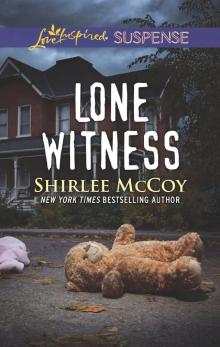 Lone Witness
Lone Witness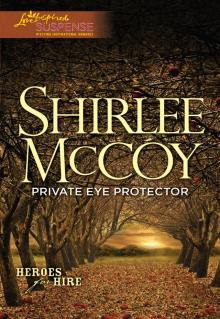 Private Eye Protector
Private Eye Protector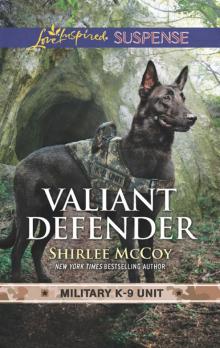 Valiant Defender
Valiant Defender Running Scared
Running Scared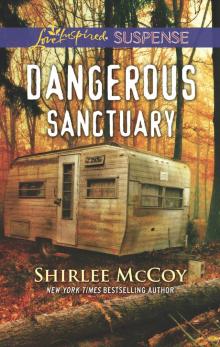 Dangerous Sanctuary
Dangerous Sanctuary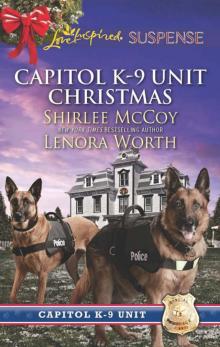 Capitol K-9 Unit Christmas: Protecting VirginiaGuarding Abigail
Capitol K-9 Unit Christmas: Protecting VirginiaGuarding Abigail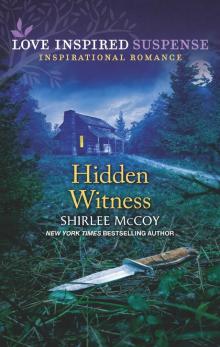 Hidden Witness
Hidden Witness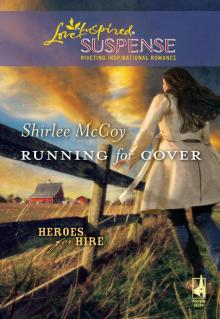 Running for Cover
Running for Cover Gone
Gone Valley of Shadows and Stranger in the Shadows: Valley of ShadowsStranger in the Shadows
Valley of Shadows and Stranger in the Shadows: Valley of ShadowsStranger in the Shadows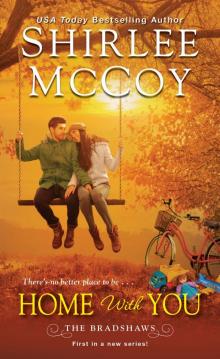 Home with You
Home with You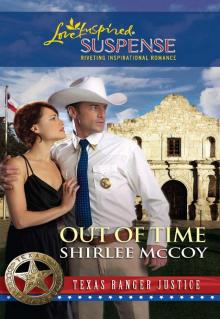 Out of Time
Out of Time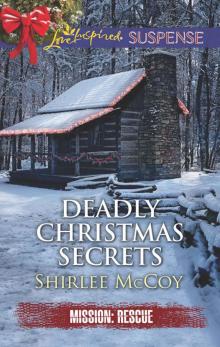 Deadly Christmas Secrets
Deadly Christmas Secrets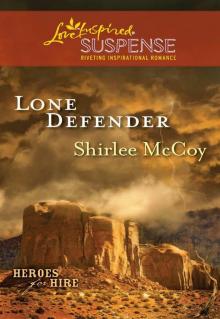 Lone Defender (Love Inspired Suspense)
Lone Defender (Love Inspired Suspense)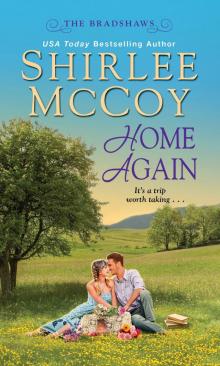 Home Again
Home Again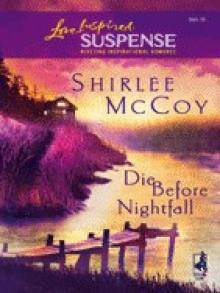 Die Before Nightfall
Die Before Nightfall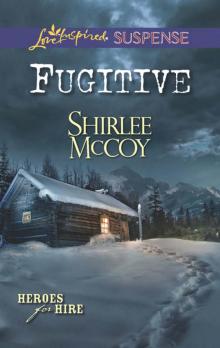 Fugitive
Fugitive Deadly Vows
Deadly Vows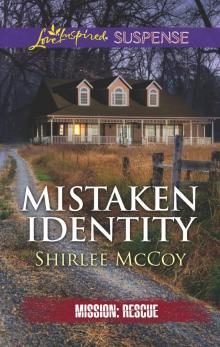 Mistaken Identity
Mistaken Identity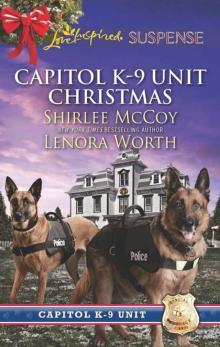 Capitol K-9 Unit Christmas
Capitol K-9 Unit Christmas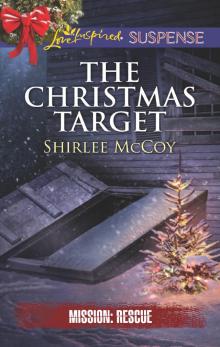 The Christmas Target
The Christmas Target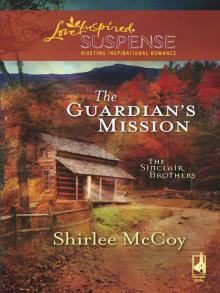 SB01 - The Guardian's Mission
SB01 - The Guardian's Mission Sweet Surprises
Sweet Surprises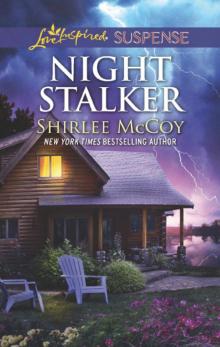 Night Stalker
Night Stalker The Cottage on the Corner
The Cottage on the Corner Love Inspired Suspense January 2014
Love Inspired Suspense January 2014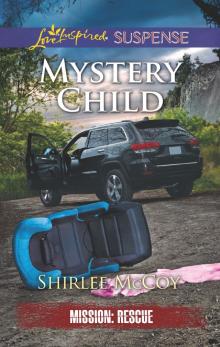 0373447477 (R)
0373447477 (R) Love Inspired Suspense March 2015 - Box Set 1 of 2: Protection DetailHidden AgendaBroken Silence
Love Inspired Suspense March 2015 - Box Set 1 of 2: Protection DetailHidden AgendaBroken Silence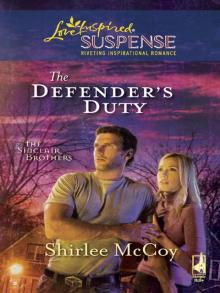 SB03 - The Defender's Duty
SB03 - The Defender's Duty Love Inspired Suspense June 2015 - Box Set 2 of 2: Exit StrategyPaybackCovert Justice
Love Inspired Suspense June 2015 - Box Set 2 of 2: Exit StrategyPaybackCovert Justice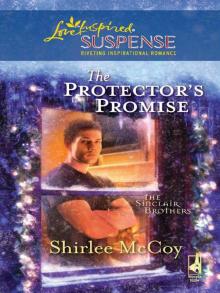 The Protector's Promise (The Sinclair Brothers)
The Protector's Promise (The Sinclair Brothers) Bodyguard
Bodyguard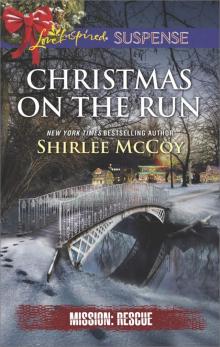 Christmas on the Run
Christmas on the Run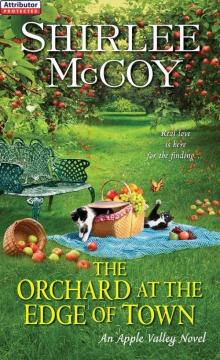 The Orchard at the Edge of Town
The Orchard at the Edge of Town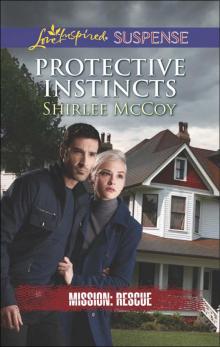 Protective Instincts
Protective Instincts Sweet Haven
Sweet Haven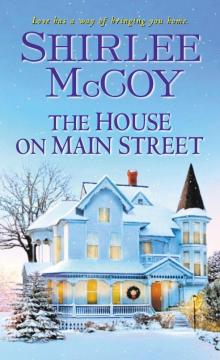 The House on Main Street
The House on Main Street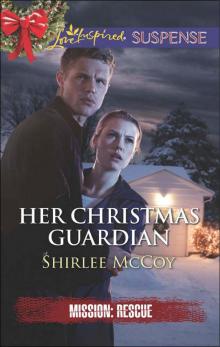 Her Christmas Guardian
Her Christmas Guardian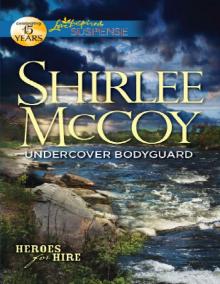 Undercover Bodyguard
Undercover Bodyguard